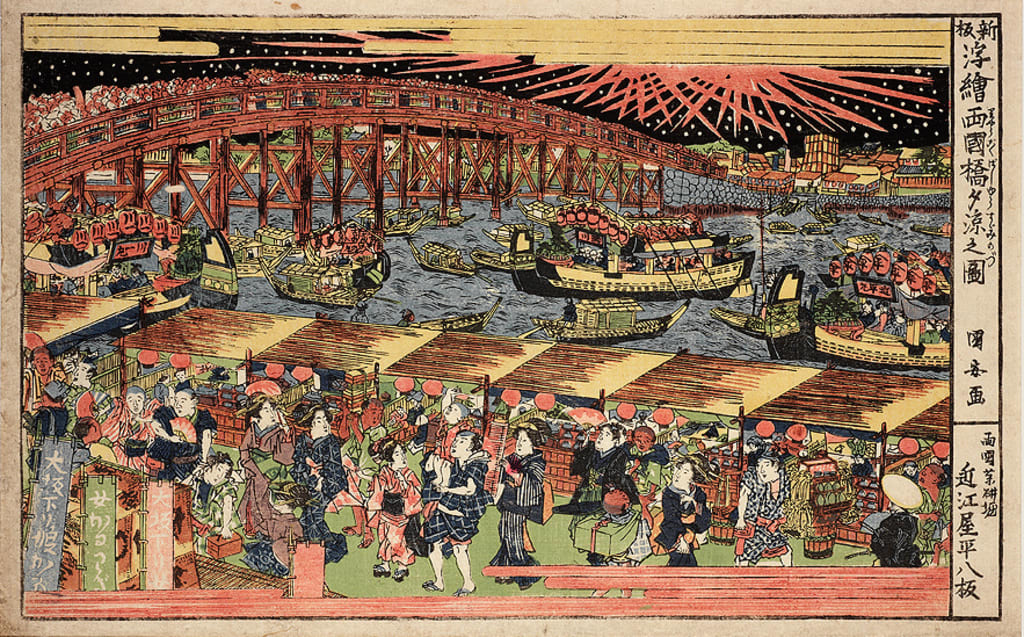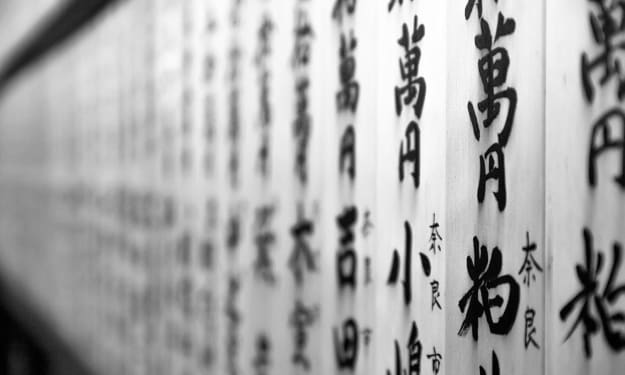Unofficial Japanese Calendar Anniversaries (Jul-Dec)
Corporate/organization created "holidays"

In a previous post, I introduced a half-year's worth of unique Japanese "anniversaries" as petitioned by corporations and organizations, and certified by the Japan Anniversary Association.
Perhaps the most well-known of these in the West are White Day (3/14) and Pocky Day (11/11). But the number of unknown anniversaries is in the literal hundreds. In fact, there are so many that more than nine-tenths of them have been forgotten by the general populous.
Picking up where I left off at Half-time Day (6/30), I give you July to December:
July 2 is Chuo Shutter Day, an extremely apropos day as Japanese businesses, large corporations to mom 'n' pops nearly all employ pull-down shutters to close up shop. Established in 1970, the Chuo Shutter company manufactures, sells, repairs, and performs maintenance on heavy and lightweight shutters. The date was set for July 2 – the middle of the year – in reference to "chuo", which means "central" in Japanese, and established on the 50th anniversary of the company in 2020, making it brand spanking new.
July 2 is also Sanitary Napkin Day. With "7" and "2" respectively pronounced as "na" and "pu" (in shortened form), it wasn't difficult for Senshukai, a major mail-order company operating the Belle Maison women's brand, to latch onto this date to begin selling cloth sanitary napkins to help ease the burden of "blue days". Respect for all the ladies.
August 7 is ? Day (Question Mark Day). Created by the famed company, Namco Limited, when it launched "Nazotomo," a portal site for information on riddle-themed events. The company also operates "Nazotomo Cafe," a riddle-themed experience facility in Japan and overseas. The idea was to introduce the idea riddle-telling based entertainment.
August 21 is Women's University Student Day, commemorating the birth of Japan's first female university students on August 21, 1913. That day, Tohoku Imperial University (now Tohoku University) announced that three female students had passed the entrance exam. Chika Kuroda and Ume Tange (Japanese language) where admitted to the chemistry department, and Raku Makita (Japanese language) was admitted to the mathematics department. The Tohoku University Gender Equality Committee successfully petitioned this anniversary which was recognized and registered by the Japan Anniversary Association in 2020.
September 9 is Crow Day. Established by the "Crow Friends Association," a group of crow lovers from all over Japan that publishes "CROW'S," Japan's first crow magazine. The purpose of the day is to encourage people to realize that often maligned crow is a surprisingly lovely and interesting creature. The registration of the anniversary was made possible via a crowdfunding campaign. There is even a webshop and a Twitter account – as if this day wasn't already something to crow about.
September 28 is Garbage War Declaration Day. On this day in 1971, then Tokyo governor, Ryokichi Minobe, declared a "Garbage War" in response to Koto Ward residents, who began forcefully blocking the delivery of garbage from Suginami Ward. The dumping ground, Yumenoshima, an artificial island built using waste landfill, had reached its limit. Located in Koto Ward, the municipality was in charge of incineration and landfill for all 23 wards of Tokyo at the time and residents had had enough.
October 10 is Childrearing Father Day. Established in 2011 by the Childrearing Father of the Year Executive Committee, this is a promotion of fathers who enjoy childcare as well as men's parental leave in the workplace. (Something that is currently very rare in Japan.) Every year an award is presented to fathers who not only enjoy raising their children but also making their wives happy.
October 26 is Historical Simulation Game Day. Established by then Koei Co., Ltd. (now Koei Tecmo Games, Inc.), the day commemorates the release of The Battle of Kawanakajima which pioneered historical simulation computer games. The date was registered and recognized on the game's 35th anniversary in 2016. The game was sold on cassette tape with a capacity of about 32KB. Koei also released Nobunaga's Ambition (1983) and Romance of the Three Kingdoms (1985), kickstarting the historical simulation game genre in the Japanese game market.
November 10 is Elevator Day. On this day in 1890, Japan's first electric elevator, installed in the 12-story brick Ryounkaku tower in Asakusa, Tokyo, was opened to the public. The Asakusa Ryounkaku was the tallest building in Japan at the time. Built as a watchtower, it offered a view across the expanse of the growing city and all the way to Mt. Fuji on clear days; it was also used for exhibition venues and housed several stores and shops. Ryounkaku means "so high that it surpasses the clouds", however, it was partially destroyed in the Great Kanto Earthquake of 1923, and later dismantled.
November 13 is Lacquer Day. The date comes from the legend that in the Heian period (794-1185), the first son of Emperor Montoku, Prince Koretaka, went to visit Horin Temple in Arashiyama, Kyoto, where a bodhisattva taught him how to make lacquer. This day has long been celebrated by people involved in the lacquer industry, with masters handing out sake and sweets to the craftsmen to thank them for their hard work. The purpose of the festival is to promote the beauty of lacquer, a traditional Japanese craft.
December 25 is Hydrogen Batteries for the Future Day. Established by the Advanced Exergy Power Study Group and organized by companies related to the development of hydrogen battery technologies, products, and systems, this day was established to promote the use of hydrogen batteries to bring about a dramatic change from petroleum energy to renewable energy and batteries, as well as, to convey to future generations the passion of companies and other organizations that aim to make this future a reality. Another reason to geth warm and fuzzy on the 25th.
December 27th is Asakusa Nakamise Commemoration Day. On this day in 1885, "Nakamise" (literally "shopping arcade") in Asakusa, Tokyo, was newly renovated and opened for business. One of the oldest shopping streets in Japan, Asakusa Nakamise is located on both sides of the approach to Senso Temple from the Gates of Kaminari (Thunder and Lightning). Lined with vendors, the pedestrian street is called "Nakamise Dori" and is about 250 meters long, with 54 stores on the east side and 35 stores on the west side, for a total of 89 stores.
That's it for the second half of the year, though we've barely scratched the surface of "anniversaries" and celebratory days in Japan. Perhaps someday, if this post gets the love and attention it deserves, I'll revisit the idea with a whole new slew of days – after all, there were plenty of new anniversaries registered in 2020 alone.
About the Creator
Made in DNA
The not-yet bestselling, non-award winning author of work you haven't read yet!
Work spans various genres -- scifi, weird, non-fiction, life in Japan.
Campsite Bio (website, Twitter, FB, IG, Mastodon, etc.)






Comments
There are no comments for this story
Be the first to respond and start the conversation.